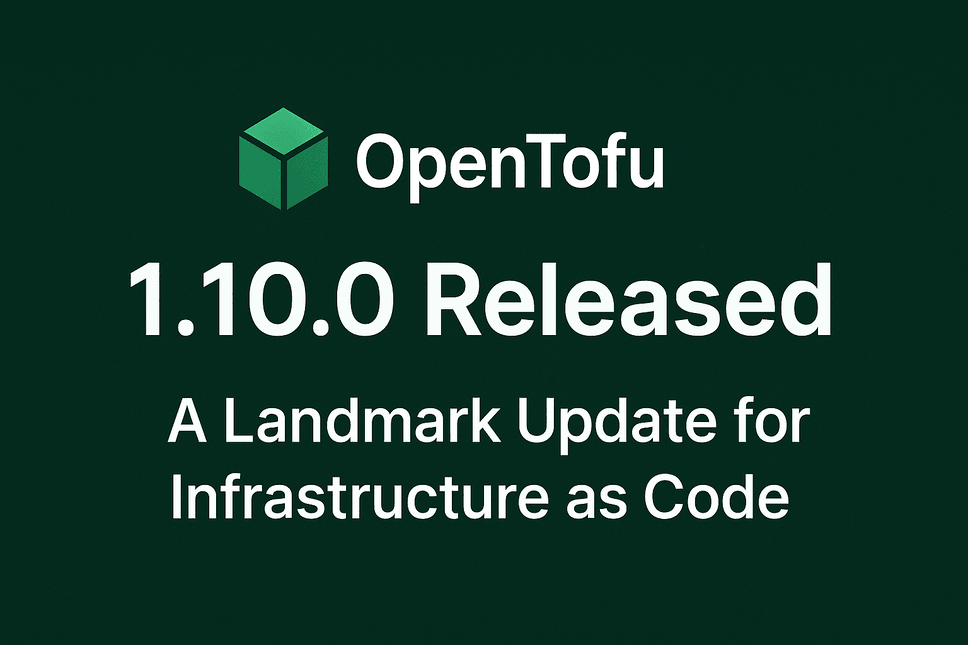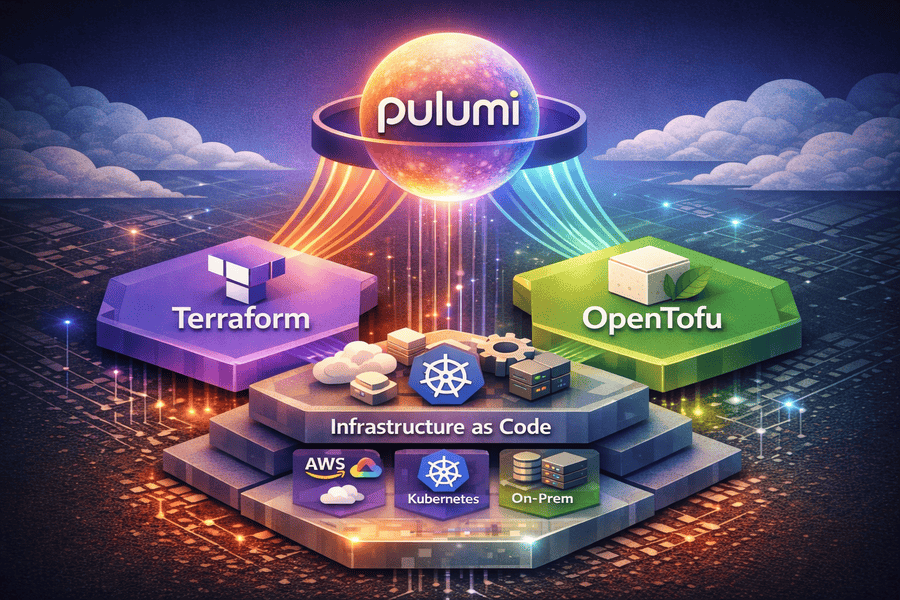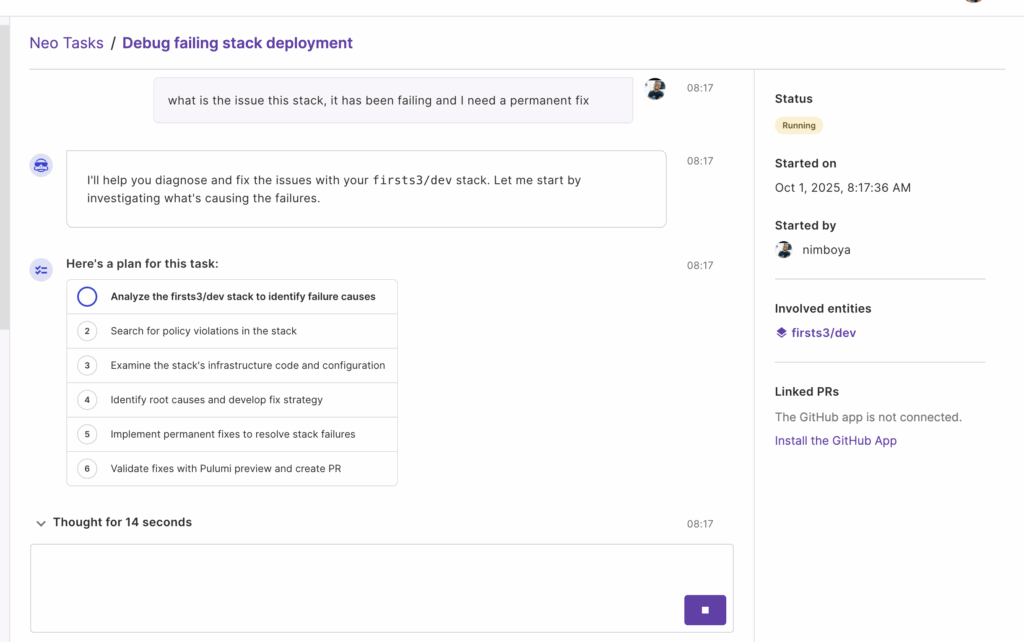The open-source Infrastructure as Code (IaC) community celebrates a major milestone with the release of OpenTofu 1.10.0, the most comprehensive and feature-packed version yet. This release reflects months of collaborative development, testing, and feedback from contributors across the world, culminating in powerful new capabilities that solve real-world infrastructure challenges at scale.
A Feature-Rich Update for Modern IaC Teams
OpenTofu 1.10.0 introduces several long-awaited features and architectural enhancements, each designed to improve security, portability, and developer productivity. Whether you’re managing enterprise-scale cloud environments or contributing to open-source infrastructure modules, this release delivers critical tooling improvements for day-to-day workflows.
Key Highlights of OpenTofu 1.10.0
- OCI Registry Support
Teams can now distribute OpenTofu providers and modules via container registries such as Docker Hub, GitHub Container Registry, and private registries. This feature is particularly impactful for air-gapped or high-security environments, enabling a secure, standardized approach to dependency management. - Native S3 State Locking
Managing state in AWS just got simpler. OpenTofu now supports native state locking directly with S3, eliminating the need to configure and maintain a separate DynamoDB table for state concurrency control. - Deprecation Attributes for Variables and Outputs
Module authors can now gracefully signal changes or removals in their APIs by marking variables and outputs as deprecated. This promotes cleaner module evolution, reduces breaking changes, and enhances collaboration across teams. - Enhanced Plan Targeting
New-target-fileand-exclude-fileoptions allow teams to define precise subsets of infrastructure to apply changes to—greatly enhancing control during deployment cycles or selective resource refactoring. - Global Provider Cache Locking
In CI/CD environments, managing concurrent OpenTofu runs just became safer. This update introduces locking for the provider cache, preventing conflicts and ensuring deterministic builds in parallel execution pipelines. - OpenTelemetry Tracing (Local Mode)
Debugging performance and tracing internal operations is now easier with local-only observability powered by OpenTelemetry. Users gain deeper insight into planning and execution behaviors without sending data outside their environment. - External Key Providers for State Encryption
OpenTofu 1.10.0 supports pluggable external key providers for state encryption. This enables integration with enterprise-grade secret managers like AWS KMS, HashiCorp Vault, or custom key services—offering greater flexibility for securing critical data. - Improved
movedandremovedBlocks
Refactoring infrastructure is safer and more intuitive with upgraded capabilities formovedandremovedblocks, reducing downtime and avoiding destructive changes during restructuring.
For the full technical changelog, visit the What’s New in OpenTofu 1.10 page.
Momentum: 10 Million Downloads and Counting
Alongside the release, OpenTofu is on the verge of surpassing 10 million downloads from GitHub releases alone a significant indicator of accelerating adoption. This number doesn’t account for installations via Homebrew, Docker Hub, system package managers, or enterprise mirrors, suggesting the real usage is far higher.
Patch adoption is also climbing rapidly. Version 1.9.1 surpassed 1.9.0 in downloads within just seven days—the fastest patch cycle seen to date. Currently, over 60% of daily downloads are for the latest 1.9.x versions, underscoring strong community trust and upgrade velocity.
The Growing OpenTofu Ecosystem
Beyond CLI-level improvements, the OpenTofu ecosystem is maturing into a well-rounded development platform. Teams can now benefit from modern IDE integration, enhanced AI tooling, and better documentation accessibility.
Official VS Code Extension (Preview)
The new OpenTofu VS Code extension (now in preview) offers:
- Syntax highlighting
- IntelliSense autocompletion
- Real-time validation
- Inline documentation lookup
This brings a rich, IDE-like experience to infrastructure engineers writing modules, templates, and deployment logic—helping catch errors early and boost productivity.
Language Server Protocol (LSP) with tofu-ls
For those not using VS Code, the same features are now available throughtofu-lsthe official Language Server Protocol implementation. Editors like Neovim, Emacs, Sublime Text, and JetBrains IDEs can benefit from code intelligence, autocompletion, and contextual help.
OpenTofu Registry MCP Server
AI-assisted development is now smarter with the OpenTofu Registry MCP Server. Compatible with tools like Claude, Cursor, and other model coding platforms (MCPs), it allows AI agents to pull up-to-date module and provider documentation directly from the OpenTofu registry. Teams can either use the hosted server at https://mcp.opentofu.org/mcp Or deploy it locally for complete privacy and control.
Getting Started with OpenTofu 1.10.0
Installing OpenTofu 1.10.0 is quick and flexible:
- Download binaries from GitHub Releases
- Install via Homebrew, Scoop, or apt/yum for your OS
- Use prebuilt Docker images from the official OpenTofu container registry
Comprehensive installation guides and upgrade instructions are available on the official website.






